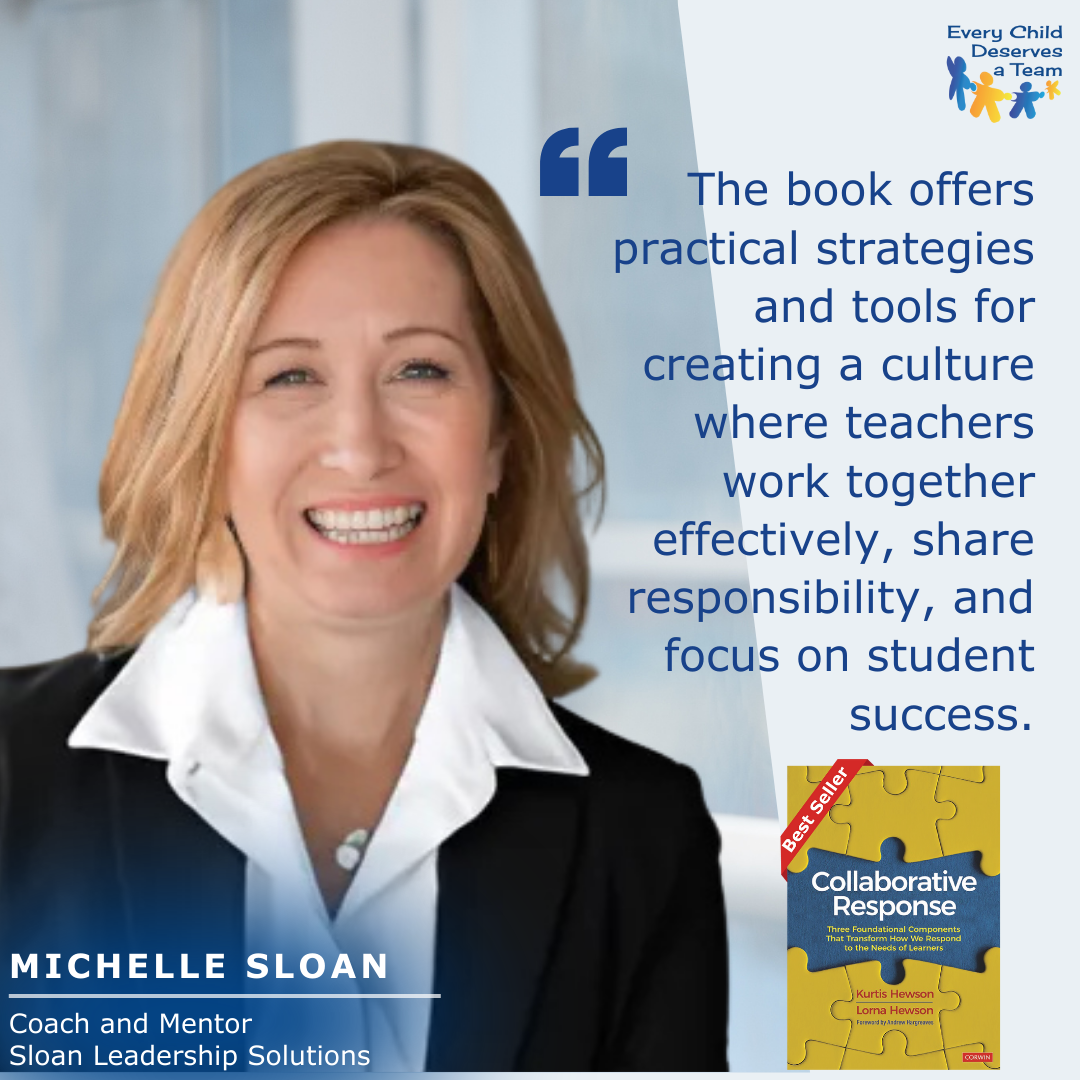
FREE Introduction
- Visit Corwin to order an Electronic Version
For bulk orders (10 or more copies) contact and receive a 10% discount!
Please note shipping is only available within Canada and the United States through our website.
Buy Now
Order This BESTSELLER Now!
FREE SHIPPING!
A school-wide model for addressing individual needs
The greatest goal of education is to ensure equity while enhancing learning and academic success for all students. And yet, it is impossible for one teacher to meet the extensive needs of all students in his or her classroom. The traditional schooling model cannot provide for this complexity and leaves educators perplexed. The solution is a collaborative approach where “every child deserves a team” to surround them with supports that recognize their strengths and challenges.
Collaborative Response offers a school-wide model for addressing students’ individual needs. The three fundamental components of the model are: collaborative structures and processes; data and evidence; and continuum of supports. In this book, readers will find:
- Entry points for beginning this work
- Potential pitfalls of the approach
- Case studies from schools that have adopted the model
- Access to a website with tools, templates, case studies, and more
With a focus on quality classroom instruction, this book shares examples from schools and districts that have transformed how they respond to the needs of all learners.
What Your Colleagues Are Saying
Collaborative Response has been instrumental in changing the lives of both staff and students. It has provided an explicit and collective framework to have conversations that lead to improved student learning outcomes and ensured that the individual learning needs of all students are recognised as every person's responsibility.
Janeen Silcock, Principal - Ballina Coast High School - Ballina, New South Wales, Australia
Collaborative Response will be Peace River School Division’s vehicle for change! Coming together as a staff to analyze where students have learning gaps and then targeting supports makes all the difference in the world for a child. We all need to be on the same team when it comes to student success and we are seeing huge benefits from Collaborative Response as it sets the table for increased student achievement at every grade level and subject area!
Adam Murray, Superintendent - Peace River School Division - Peace River, Alberta, Canada
Through understanding the role of assessment, collaboration, and a defined continuum of supports, Kurtis and Lorna lay out multiple entry points for schools, leadership teams, and senior leaders that will ultimately impact all students in achievement, inclusion, and well-being.
Joanne Pitman, Superintendent School Improvement - Calgary Board of Education - Calgary, Alberta, Canada
Collaborative Response provides a well-researched, flexible framework from which to address and support individual student learning needs. Administrators and teachers will appreciate the structures and processes which can be easily integrated into their practice. With clear guidelines for everything from organizing student data, to planning efficient team meetings, this book is a fantastic resource for improving student learning.
David Dyck, Education Director - Calgary Board of Education - Calgary, Alberta, Canada
We are excited about building a richer, deeper framework for collaboration among all of our staff members and for being more intentional about supporting all of our students. Kurtis, Lorna and the Jigsaw Learning team have been invaluable in providing informative videos, templates, articles, and learning opportunities that are guiding our leadership team in leading professional development for our staff.
Karen Currie, Principal - Kamloops Christian School - Kamloops, British Columbia, Canada
With the implementation of consistent, intentional structures such as the Collaborative Team Meetings, data analysis, and continuum of supports, we have seen increased efficacy, confidence, and collaboration at all levels of our organization. We are embracing a culture where staff rely on the strengths of their colleagues in a student-centred approach to inclusivity.Pamela Guilbault, Superintendent - Lakeland Catholic School Division - Bonnyville, Alberta, Canada

